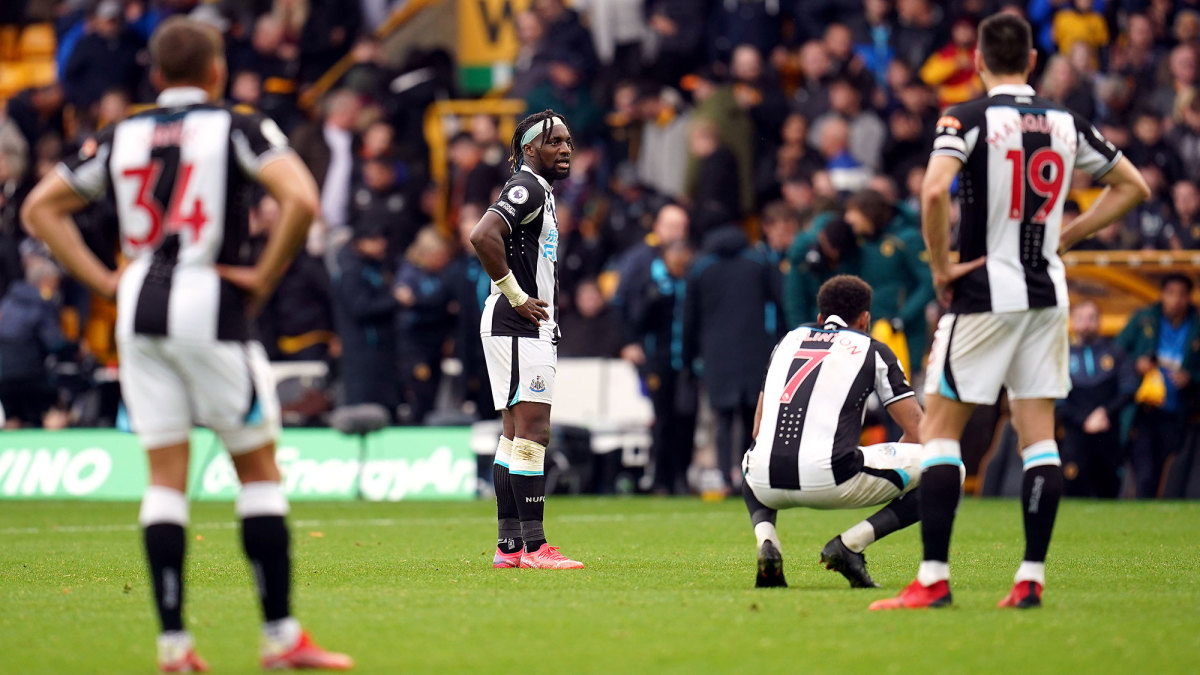Newcastle Is a Long Way From the Top
Somewhere, if you look really hard, there is a struggling football team at the heart of the Newcastle United story. The Saudi government’s record on a whole range of human rights issues should never be forgotten or overlooked. Nor should the cravenness of the Premier League in pretending the Saudi Public Investment Fund and the Kingdom of Saudi Arabia are somehow discrete entities while, again, allowing a wholly inappropriate owner to take over a club. And neither should the wider lessons of what this says about a modern Britain in which everything is for sale and nobody seems much to care about ethics or consequences so long as they are benefiting.
But beyond all that there is the issue of the football, because if the new ownership does not get that right, not only will fans soon turn against them—if you’re selling your soul, you really don’t want a second-tier Championship side in return—but it will be an enormous embarrassment for Saudi Arabia. Or rather for the PIF, which is of course "entirely distinct."
This is a much harder job than the sovereign wealth funds of Abu Dhabi and Qatar faced after taking over Manchester City and Paris Saint-Germain, respectively. City had finished ninth before its takeover while PSG was fourth in France before its injection of wealth. City already had the likes of Joe Hart, Vincent Kompany and Pablo Zabaleta in the squad (the latter two signed in the days just before the deal went through). PSG was building from a lower base, but it was certainly closer to a Champions League side than a squad entirely dependent for creativity on Allan Saint-Maximin and Callum Wilson.
And this is the great practical problem facing Newcastle. Assuming the intention is to become a regular Champions League qualifier, there is at least a two-stage and possibly a three-stage process to go through, and those stages don’t necessarily require the same manager.
First of all, there is the basic fact that Newcastle is in a relegation battle. It has not won a game or kept a clean sheet in the league yet this season (0-5-4), and it faces first-place Chelsea this Saturday. It has yet to face Man City or Liverpool, and its fixture list to date hasn't been all that challenging, which is both an indictment on the current squad and an indicator of what's still to come. The Magpies are second from the bottom, above only Norwich, which feels like it's as good as relegated already. They're level with Burnley and three points behind Leeds in 17th place, which is good enough to secure safety in the top flight and is as much of a target as any this season given the big-picture aspirations.
There is an argument that, embarrassing as it would be, relegation could be purgative, allowing a stripping out of the deadwood, but just because Newcastle has been promoted immediately after its last two relegations does not necessarily mean that would happen again. The Championship is a tough slog. And going down would also delay the whole process. Even this January, which high-level players, the kind that Newcastle has been linked with given its newfound prosperity, really would want to join a relegation scrap?
So the first job is to stay up. But the manager who can achieve that isn’t necessarily the manager to begin, essentially from scratch, the construction of a glamorous side that can compete at the top of the table. And the manager who can oversee that transition may not then be the one who can actually win trophies. Those are three different skills, and it’s one of football’s great fallacies that a great manager is a great manager at any level. Then there are all the attendant issues about recruitment and the academy, the appointment of a sporting director and the development of an infrastructure that means there is a plan there beyond simply splurging cash. In that sense, the reported talks with Ajax sporting director Marc Overmars should probably encourage fans.
But complicating that are two factors. First, that as yet there seems to be little coherence at the boardroom level, with talk of three factions—the Staveleys, the Reubens, and the Saudis—all having differing ideas and little clear structure or hierarchy, with decisions having to be ratified in Saudi Arabia (although by the PIF, of course, not the government). That was why manager Steve Bruce lingered for the first game under the new regime and may be why no decision has yet been made regarding his successor. Graeme Jones was tabbed as interim manager for two matches, and former Shakhtar Donetsk and Roma manager Paulo Fonseca have been heavily linked to the position.
And then there is money. For all the fanciful talk of bids for Kylian Mbappé or Erling Haaland, the comprehensive football business chronicler Swiss Ramble suggests that while a £600 million spree is possible within Financial Fair Play regulations, that would severely curtail investment in years to come without a major increase in revenue. It is suggested that spending around £200 million per year is reasonable at this stage.
In a world where the pandemic is still largely impacting club finances, that could go a long way, but it means the addition of probably four high-class players a year. At that rate of improvement, even assuming the money is well spent, it will be at least three years (and probably more) before this squad is remotely competitive at the top of the table. And that will be a time full of constant transition and constant difficult decisions.
Newcastle needs to hope the new owners have an abundance of patience in addition to their cash.
More Soccer Coverage:







